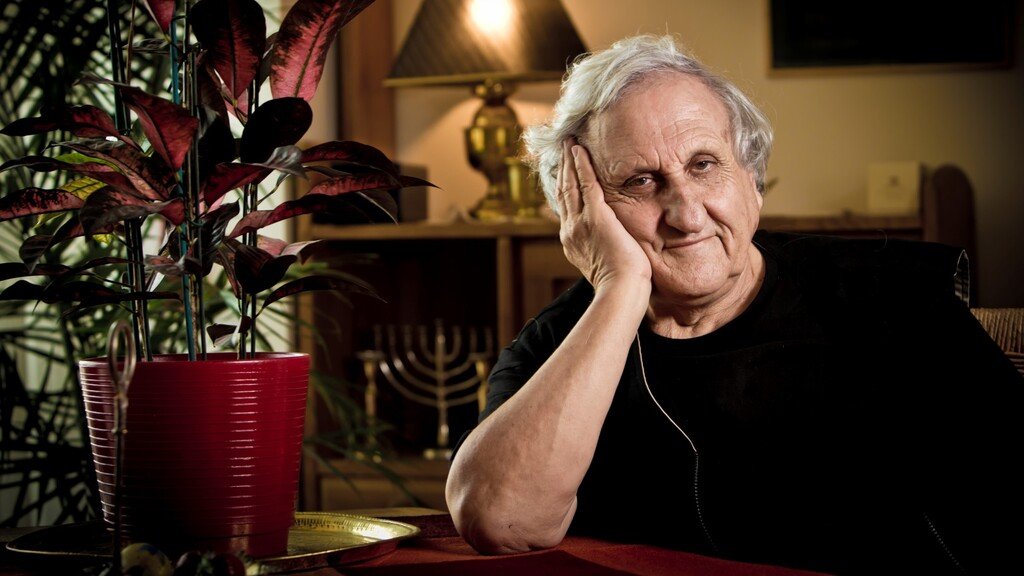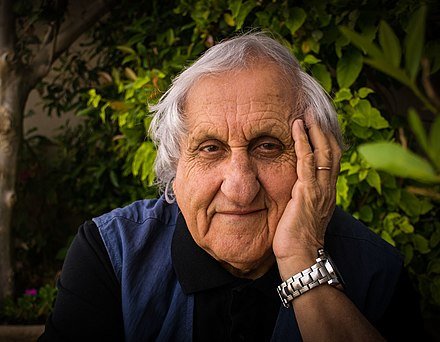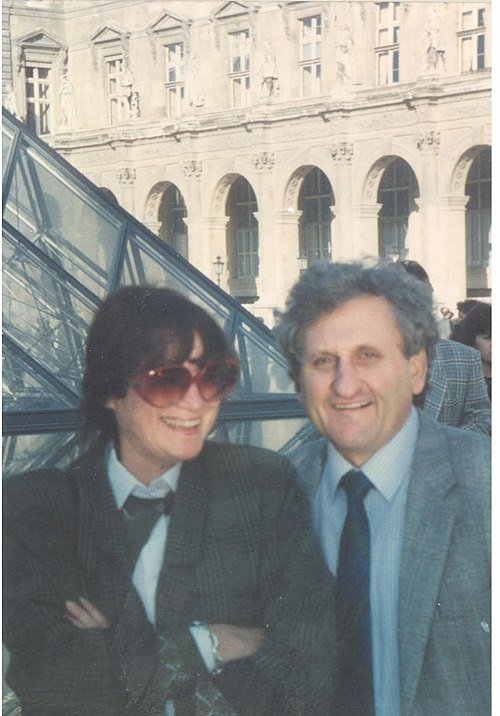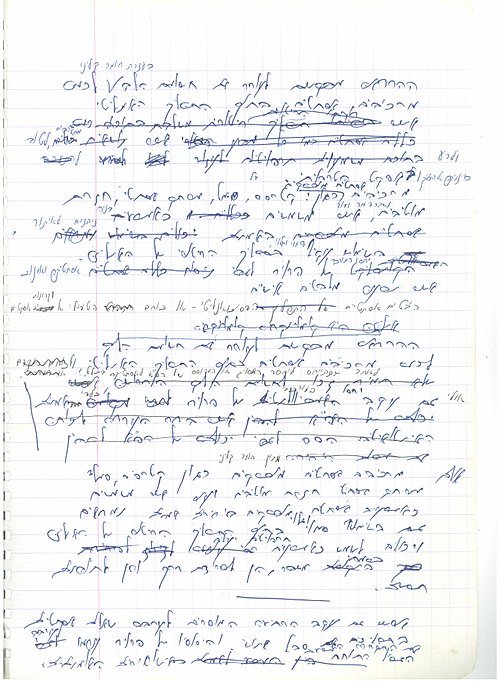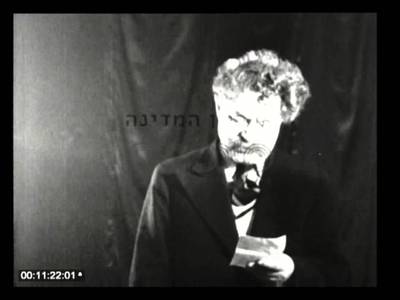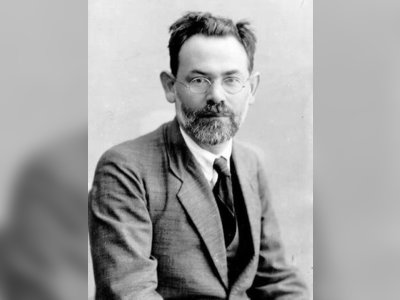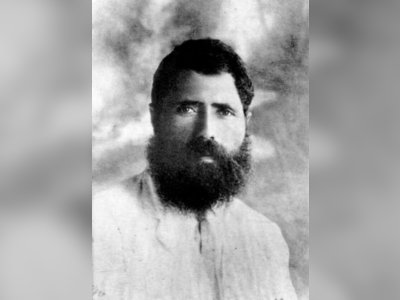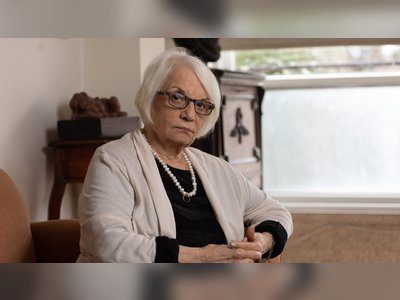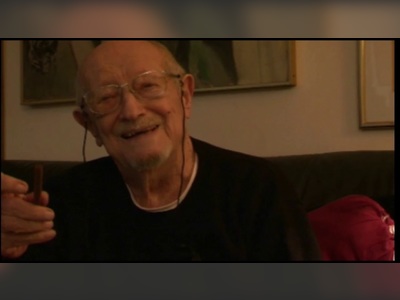Abraham B. Yehoshua: A Life in Literature and Activism
Abraham Gabriel (Buli) Yehoshua, born on December 9, 1936, in Jerusalem, Israel, was a prominent Israeli writer, essayist, and playwright. He was a recipient of the Israel Prize (1995), the EMET Prize for Literature (2016), and held the title of Professor Emeritus at the University of Haifa.
Yehoshua was widely regarded as one of Israel's most distinguished writers, earning numerous awards throughout his career. Some of his notable works include "Returning from India," "The Lover," and "The Deputy Commissioner of Human Resources." In a 2020 interview with ynet, he once said, "I envy the dead. I envy so many friends, and of course, my wife, who saved for themselves the final stage that I am now living."
Abraham B. Yehoshua passed away on June 14, 2022, at the age of 85, in Ichilov Hospital, Tel Aviv, leaving behind a legacy of literary excellence and intellectual engagement.
Biography
Yehoshua was born, raised, and educated in Jerusalem. His father, Yaakov Yehoshua, was a third-generation Sephardic Jew from the city of Thessaloniki in Greece. His mother, Malka, born and raised in Mogador, Morocco, immigrated to Israel with her parents in 1932. Abraham's paternal grandfather, Elazar, was a prominent figure in the Western Sephardic community in Jerusalem and the grandson of Rabbi Moshe Rosilio, one of the leading scholars of the Casablanca Yeshiva and the author of the book "Kol Mevaser" on the Talmud. Yehoshua recalled the differing educational perspectives of his parents.
He noted that in his mother's view, "his father's old Sephardic community was no less strange than the predominantly Ashkenazi Zionist settlement that was the majority in Jerusalem, and certainly did not feel any special emotional commitment to the Sephardic community. Her language was French, and she did not know Ladino."
Her aspiration was to connect with "the heart of the land," referring to the Ashkenazi Zionist world, rather than what she perceived as the periphery of the Sephardic community. In contrast, his father was deeply connected to the Sephardic-Jerusalemite heritage.
Yehoshua was educated in a secular-Zionist environment with socialist leanings. He attended the Hebrew Gymnasium in Rehavia and was a member of the Scout Movement. Afterward, he served in the Israel Defense Forces in the Paratroopers Brigade and participated in retribution operations and Operation Kadesh. He studied literature and philosophy at the Hebrew University of Jerusalem.
In the 1960s, he served as the editor of the "Haye Nekun" newspaper associated with the Scout Movement. In 2016, he received the EMET Prize for Literature jointly with Ronit Matalon. In 2017, he was awarded the Dan David Prize.
Yehoshua taught in high schools and at the university level. He is currently a Professor Emeritus in the Department of Hebrew and Comparative Literature at the University of Haifa. Throughout his career, he mentored many writers, including Mordecai Harel. He lived in Haifa for most of his adult life, and the city is a recurring theme in his works, as well as its various aspects, including the university.
He served as a visiting lecturer at Harvard (1977), the University of Chicago (1988, 1997, 2000), and Princeton (1992). He was awarded honorary doctorates from Tel Aviv University, Bar-Ilan University, the Weizmann Institute, Ben-Gurion University, the University of Turin, and the École Normale Supérieure in Paris.
Today, Yehoshua resided in Givatayim, Israel. He was married to Dr. Rivka (Ika) Yehoshua, a psychoanalyst by profession, until her passing in September 2016. He was the father of three and the grandfather of seven grandchildren.
His archives are held in the National Library of Israel's archive department in Jerusalem.
Literary Work
Abraham B. Yehoshua's literary contributions garnered wide recognition, both in Israel and internationally. He received numerous literary awards for his diverse body of work, including the Bialik Prize, the Brenner Prize, the Israel Prize for Literature, and the French Médicis Prize for a foreign author.
The New York Times described him as "a kind of Israeli Faulkner" due to his unique ability to express and capture the contemporary Israeli spirit. His book "The Woman from Jerusalem," an English translation of "The Deputy Commissioner of Human Resources," was included in The New York Times' list of the 100 notable books of the year in 2006 and Publishers Weekly's best books of 2006.
In April 2007, he received the Los Angeles Times Book Prize for "The Deputy Commissioner of Human Resources." In 2010, the book was adapted into a film directed by Eran Riklis and co-written by Yehoshua himself.
Political Activism and Views
Yehoshua was a vocal critic of Israeli policy in the West Bank, Gaza Strip, and the territories occupied since 1967. He was a signatory of the Geneva Initiative, a peace plan for resolving the Israeli-Palestinian conflict. He was also a member of the Labor Party and, in the 2001 elections, expressed support for the Center-Left party Shinui. However, he later returned to the Labor Party as part of a group called "Hug 77" and contributed to the party's new platform.
In February 1988, during the First Intifada, Yehoshua, along with fellow writers Yehuda Amichai, Amos Oz, and Amos Elon, published an open letter in The New York Times calling on the Israeli government to agree to a ceasefire and not to escalate the conflict in Lebanon, as it later did.
In his writings and interviews, he described himself as a "conscripted writer" with a commitment and responsibility to address ongoing issues. He began exposing his opinions on social and political matters with his essay collection "In the Land of Normals," which sparked discussions in Israel and abroad.
In December 2016, he suggested granting citizenship to the approximately 100,000 Arab residents of Areas C in the West Bank, without annexing the actual territory.
Yehoshua was a member of the Public Council of B'Tselem, an Israeli human rights organization.
Legacy
Abraham B. Yehoshua's literary legacy extends through his novels, short stories, plays, and essays. His works continue to be studied and appreciated, and his contributions to literature and the Israeli intellectual discourse are celebrated both in Israel and around the world.
- אברהם ב. יהושעhe.wikipedia.org
